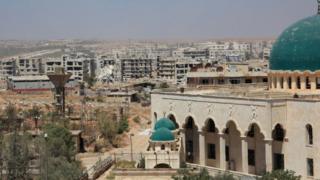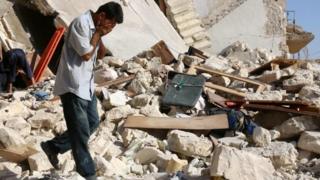Who grows those terrorists?
"The head of the Russian Reconciliation Center reported on Monday that the jihadist rebels have built up a force of 6,000+ fighters to block the Syrian Arab Army’s (SAA) advance in the southern Aleppo countryside."
Over 6,000 jihadists block the Syrian Army in southern Aleppo: Russia
"The head of the Russian Reconciliation Center reported on Monday that the jihadist rebels have built up a force of 6,000+ fighters to block the Syrian Arab Army’s (SAA) advance in the southern Aleppo countryside."
Over 6,000 jihadists block the Syrian Army in southern Aleppo: Russia




